STEM educators and industry leaders are painting a bright future, both in jobs and salaries for the coming generation of students considering and pursuing careers in science, technology, engineering and mathematics.
About 40 educators and professionals gathered recently at Middle Tennessee State University for the Texas Instruments-sponsored “Building the STEM Bridge … From K-12 to Higher Ed to Careers” Leadership Summit in the Ingram Building’s MT Center.
Following a five-hour session featuring a keynote, two presentations, panel discussion, a networking luncheon and a closing regional STEM initiatives discussion, virtually everyone left the summit with a desire to collaborate, grow, promote and recruit bright young minds into STEM fields.
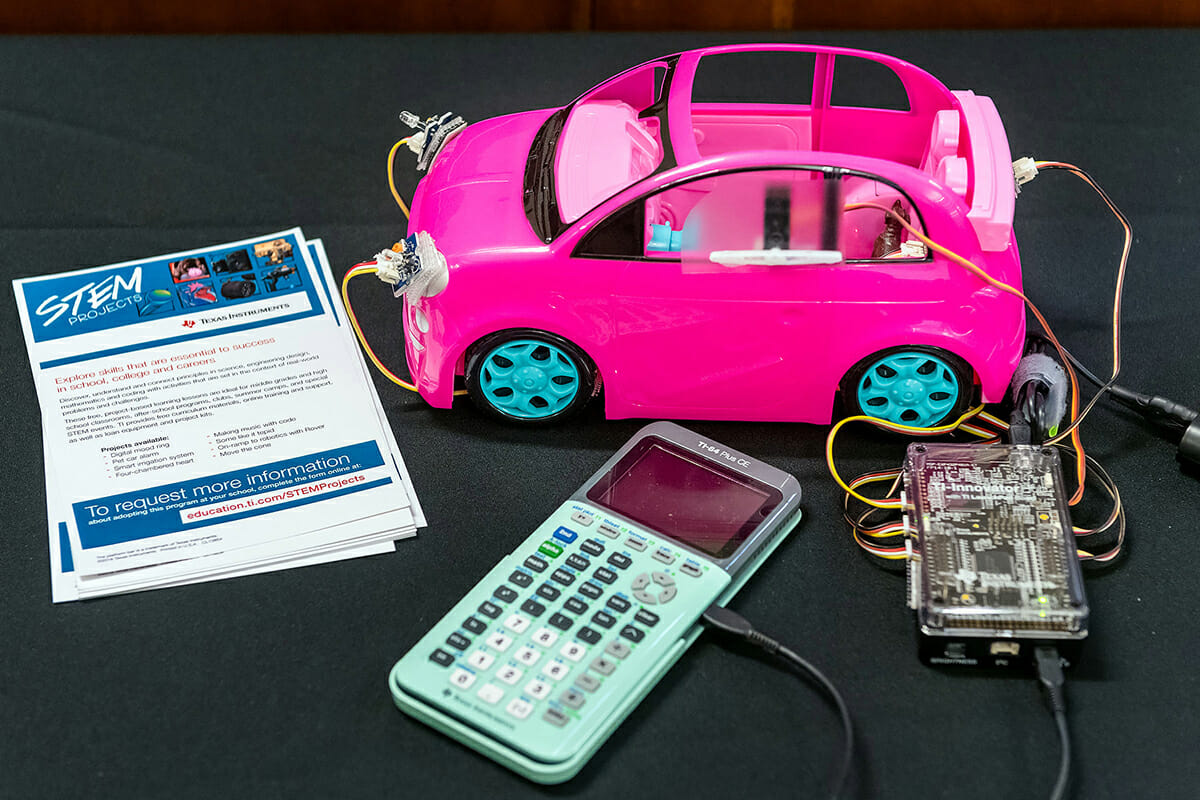
Texas Instruments high-tech gadgets and gizmos on display during the “Building the STEM Bridge … From K-12 to Higher Ed to Careers” leadership summit recently in the Ingram Building’s MT Center on the MTSU campus. (MTSU photo by J. Intintoli)
Educators came from across the Midstate, from elementary through university levels, to attend the summit.
“We need to engage and energize students and encourage creativity and excitement,” said Kanika Carver, strategic alliance director with Texas Instruments.
Tammy Jones, an adjunct professor in the MTSU Department of Mathematical Sciences, said STEM educators are “preparing students for jobs that do not exist. We need to teach so they can better adapt.”
“We’re hoping to lay the foundation for some opportunities,” Jones added, referring to the Tennessee Stem Education Center. “We need to expand STEM awareness opportunities, community interaction and support and bring in more students on campus.”
The Tennessee STEM Education Center is led by director Greg Rushton, who served as a panelist and session facilitator at the summit.
“There’s no way to get away from the integration of technology and science in our culture and society,” Rushton said. “Even if you are not going to work in that space directly, you’re going to be influenced by it. You’re going to be interacting with it as a citizen. I think workforce development is one piece of it.”
“How many fields are always changing, solving new problems all the time, engaging multiple communities, multiple cultures, multiple points of view?” Rushton continued. “It’s a very exciting field to be a part of. I’m glad to be a part of the conversation. It’s going to touch every one of us in one way or another.”
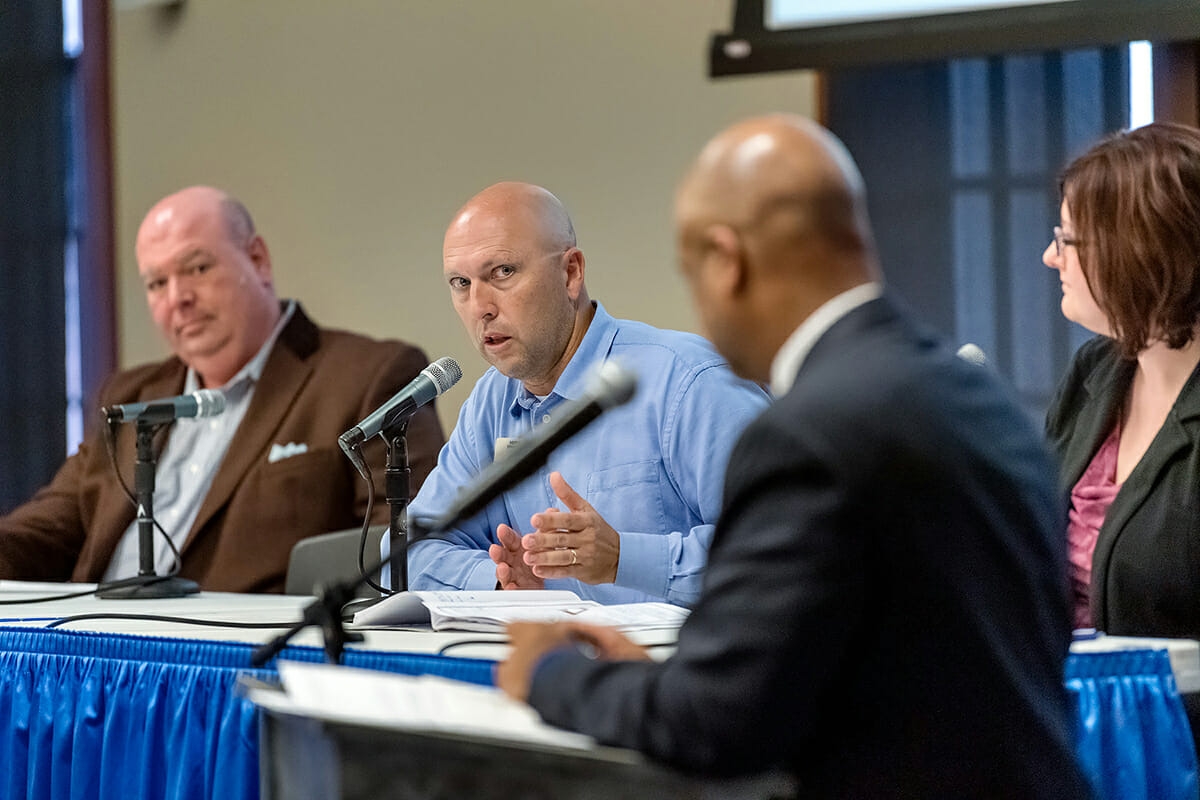
MTSU Tennessee STEM Education Center Director Greg Rushton, second from left, shares his experience with engaging enthusiastic students in the classroom during a recent panel discussion, sponsored by Texas Instruments and held at MTSU, to promote STEM education. From left are Scott Eddins, a mathematics strategy and support coordinator with the Tennessee Department of Education; Rushton; Dr. Maria Danielle Garrett, a Belmont University chemistry professor; and moderator Alfred Hall of the University of Memphis. (MTSU photo by J. Intintoli)
Maxine Dawson, a math and physics teacher at Cannon County High School in Woodbury, Tennessee, said she wants to develop the STEM program for the next generation by “putting it in sixth-grade students’ hands.”
“It’s rural and it costs money,” Dawson said of her county and the necessary investment for STEM education. “We have a new administration and they are sensitive to that. … We have several kids interested in robotics; they are learning coding after school, and this will give them options.”
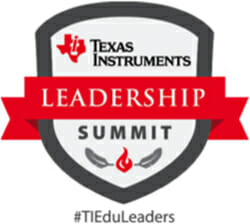 Dawson and her fellow educators Tommy Gossett of Ashland City, Tennessee, a teacher in the Cheatham County school system, and Dr. Jennifer Berry, director of Metro Nashville Public Schools’ STEAM Initiative, which incorporates the arts into STEM education, were among the attendees observing high-tech Texas Instruments gadgets, gizmos and robotics at the project-based learning STEM tables between sessions.
Dawson and her fellow educators Tommy Gossett of Ashland City, Tennessee, a teacher in the Cheatham County school system, and Dr. Jennifer Berry, director of Metro Nashville Public Schools’ STEAM Initiative, which incorporates the arts into STEM education, were among the attendees observing high-tech Texas Instruments gadgets, gizmos and robotics at the project-based learning STEM tables between sessions.
Vince O’Connell, director of school partnerships with Texas Instruments, said from his company’s perspective, “the biggest thing we see working with schools and districts is making sure that each of the components of STEM has an equal footing. It’s important that math, engineering, technology and science work together for the ability to transition and to make students work through that in a real-life and real-world situation.”
“Texas Instruments is very excited about the opportunities,” O’Connell continued. “There’s a huge gap in having students be available to support all of this growth in STEM. As a company, it’s important universities like Middle Tennessee State are developing thought leaders along with students that can come and perform in the workplace.”
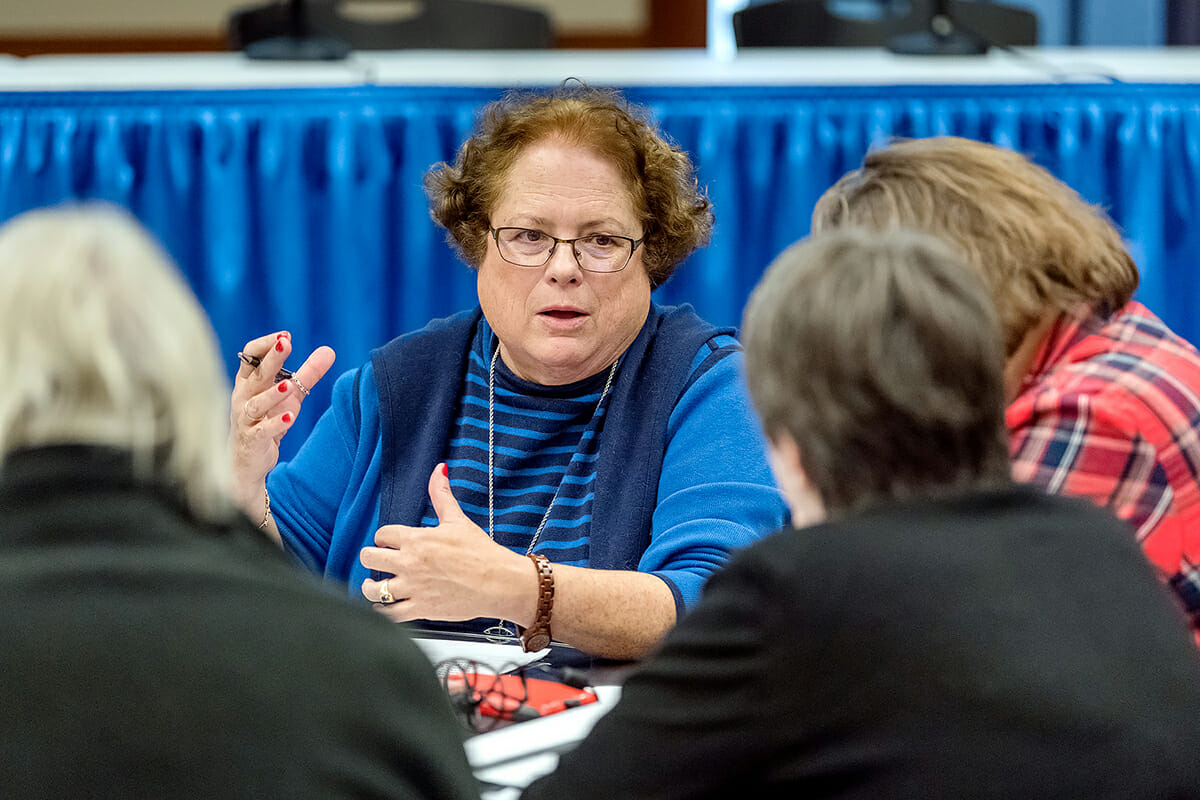
MTSU math professor Mary Martin, center, and other Leadership Summit participants discuss STEM-related questions during the recent networking event held in MTSU’s Ingram Building MT Center. (MTSU photo by J. Intintoli)
Keynote speaker Alfred Hall, the assistant dean of the University of Memphis’ College of Education, discussed emerging trends in STEM to help guide the way, noting framework goals that students should have when they reach 12th grade.
“K-12 science education in the U.S. fails to achieve these outcomes, in part because it is not organized systemically across multiple years of school, emphasizes discrete facts with a focus on breadth over depth and does not provide students with engaging opportunities to experience how science is actually done,” he said. “The framework is designed to directly address and overcome these weaknesses.”
Hall moderated the “Closing the Gaps in STEM from Education to Careers” panel that included Rushton, Scott Eddins of the Tennessee Department of Education and Dr. Maria Danielle Garrett, an assistant chemistry professor at Belmont University.
MTSU math professor Mary Martin said a successful College of Basic and Applied Sciences summer workshop led by Texas Instruments representatives helped to create the Nov. 9 summit. It was TI’s first such higher education-focused meeting, and its aim was to start a new networking program at MTSU that organizers hope to replicate in other states, she added.
— Randy Weiler (Randy.Weiler@mtsu.edu)
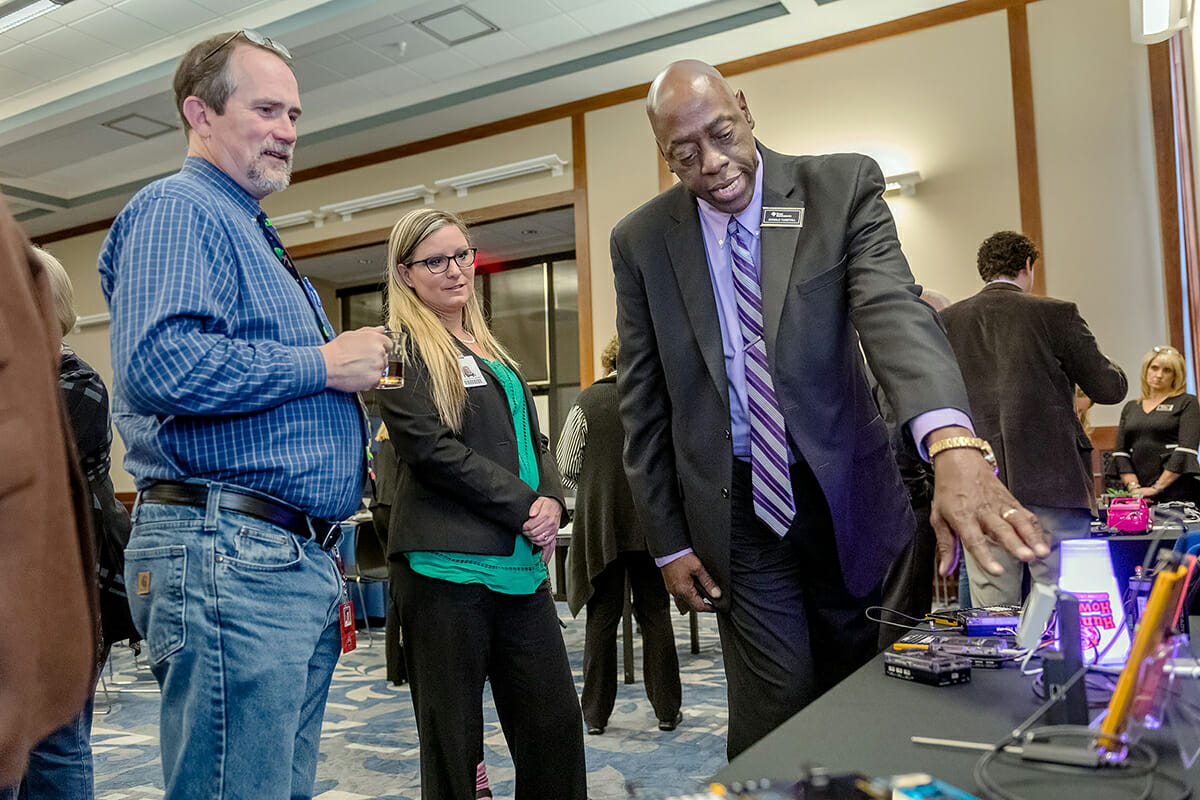
Tommy Gossett, left, who teaches fourth-graders at Ashland City Elementary School in Cheatham County, and Metro Nashville Public Schools STEAM and Science Director Jennifer Berry listen as Texas Instruments’ technical adoption consultant Donald Tunstall explains the technology behind some of their products. (MTSU photo by J. Intintoli)
Tommy Gossett and Jennifer Berry, Director of STEAM, Metro Nashville listening to Donald Tunstall, Texas Instruments describe the tech displays.

COMMENTS ARE OFF THIS POST